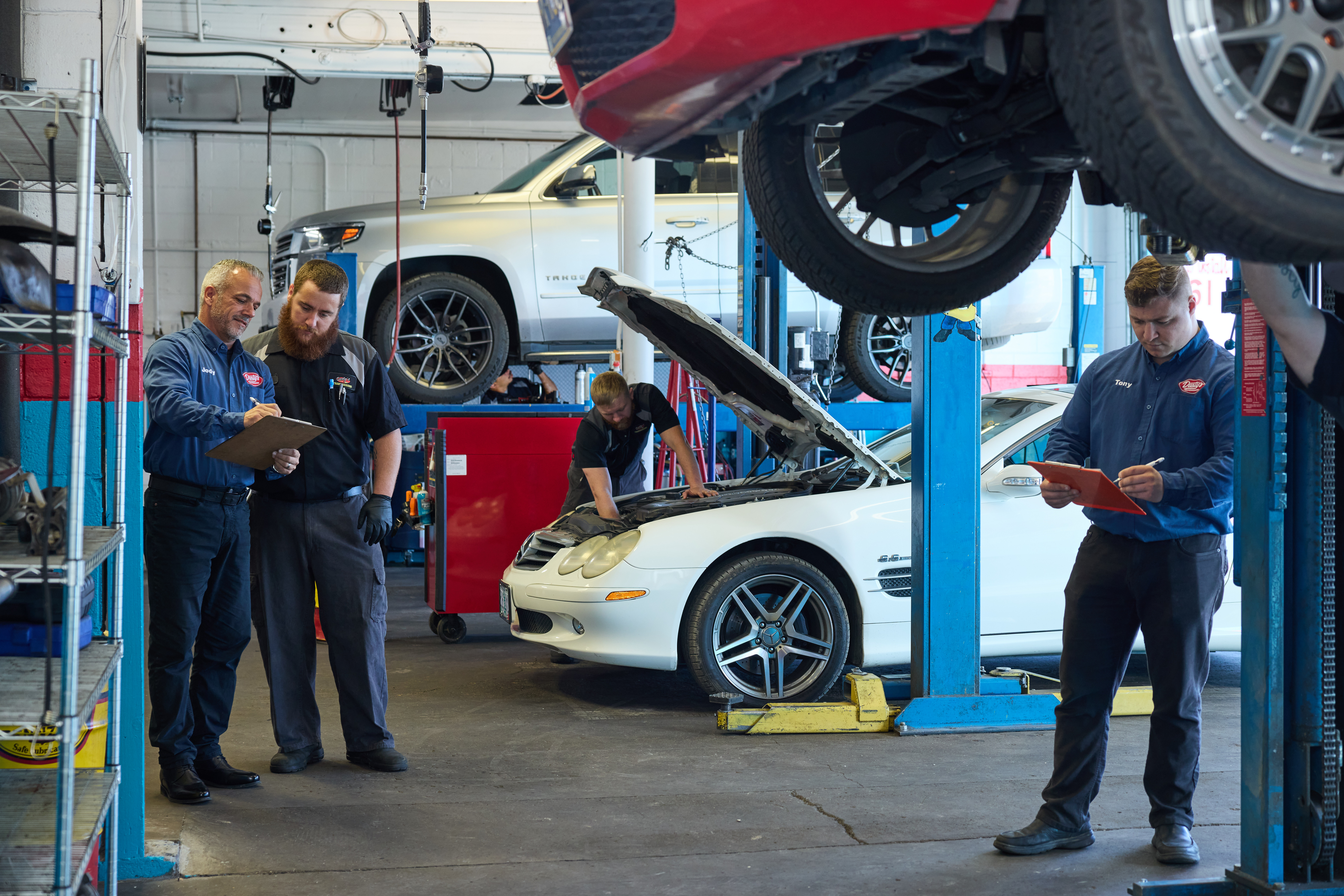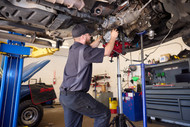26th Mar 2025
The Complete Guide to Auto Repair in Central Point, Oregon: Common Issues and Fixes
Your vehicle does a lot more than just get you from A to B—it keeps your life moving. This is the reason why staying on top of maintenance and repairs is an important part of your safety and your car’s longevity.
When it comes to auto repair, Central Point, Oregon drivers—and their neighbors in Eagle Point and surrounding areas—deal with a mix of road conditions, weather swings, and everyday wear that can lead to all kinds of issues under the hood. From strange noises to flashing dash lights, it helps to know what’s normal, what’s not, and when it’s time to call in the pros.
In this guide, we’ll look at the most common auto repairs in the area, how to spot the warning signs, and how to choose a repair shop that’ll treat both you and your car right.
Common Auto Repair Issues in Central Point and Eagle Point
From daily commutes to weekend drives through the Rogue Valley, your car sees a lot—and sometimes, it starts to show. Here are some of the most common issues local drivers face and what might be going on behind the scenes.
Brake system problems
Your brakes are your first line of defense, so when something feels off, don’t wait.
Symptoms: Squeaking, grinding, or a brake pedal that feels too soft.
What’s likely going on: Worn brake pads, warped rotors, or a brake fluid leak.
Suspension and steering issues
Central Point and Eagle Point roads aren’t always smooth sailing. If your ride starts to feel bumpy or your steering gets sloppy, your suspension could be the culprit.
Symptoms: Pulling to one side, uneven tire wear, trouble staying in your lane.
What’s likely going on: Worn shocks, bad alignment, or tired suspension components.
Transmission troubles
Slipping gears or delays when shifting? That could signal transmission issues that need fast attention.
Symptoms: Jerky transitions, odd noises when shifting, or delayed engagement.
What’s likely going on: Low transmission fluid, clutch wear, or internal transmission damage.
Engine performance issues
When your engine’s not running right, everything suffers—from fuel mileage to overall reliability.
Symptoms: Rough idling, sluggish acceleration, decreased gas mileage.
What’s likely going on: Clogged fuel injectors, worn spark plugs, or sensor issues.
Electrical system malfunctions
Modern cars rely on tons of electronics. When the wiring isn’t working, it affects everything from lights to locks.
Symptoms: Battery keeps dying, dashboard lights flickering, windows or doors misbehaving.
What’s likely going on: A failing alternator, corroded wires, or blown fuses.
No matter the issue, spotting these warning signs early can save you time, money, and headaches—and help you find the right repair shop before a small problem becomes a big one.
Smart Maintenance to Stay Ahead of Repairs
The best way to deal with car trouble? Stop it before it starts. Staying on top of regular maintenance is the simplest, most cost-effective way to avoid unexpected breakdowns—and a huge part of keeping your vehicle reliable for the long haul.
Here’s what drivers should keep on their radar:
-
Get those oil changes and fluid checks on schedule. Fresh oil keeps your engine running smoothly, and checking transmission, brake, and coolant levels regularly can catch small issues before they snowball.
-
Rotate your tires and check your alignment. It evens out wear and helps your car handle better—especially important on rougher roads or if you’re commuting between towns like Medford and Eagle Point.
-
Don’t skip your brake inspections. If your brakes are squeaky, soft, or just overdue for a checkup, get them looked at. Catching worn pads or low brake fluid early can prevent damage to your rotors and keep you safe.
-
Replace those filters. A dirty cabin air filter or fuel filter can affect performance, air quality, and even fuel efficiency.
Think of these like little investments in your car’s future. The time and money you spend now can save you from a major repair—and a serious headache—down the road.
When to Visit a Mechanic

Some car issues creep in quietly, but others send up red flags that shouldn’t be ignored. If your dashboard lights are flickering like a Christmas tree or your car just isn’t driving the way it used to, it’s time to get it checked out—sooner, not later.
Here are a few signs that call for a trip to your local repair shop:
-
Warning lights that stay on, especially the check engine, transmission, or brake light
-
Unusual noises like grinding, whining, or knocking under the hood
-
Fluid leaks under the car (anything other than condensation from the A/C isn’t normal)
-
Changes in performance—sluggish acceleration, jerky shifting, or delayed response
-
Odd smells like burning rubber, oil, or a sweet syrupy scent from leaking coolant
Waiting to address these issues can turn a minor repair into a major one. And the longer you wait, the more likely it is that damage spreads to other parts of the system.
If you’re not sure whether it’s serious, call your local shop and ask. Most reputable places will be happy to listen, offer advice, and schedule a quick look. Peace of mind (and avoiding a breakdown) is worth the trip.
Choosing a Reputable Auto Repair Shop
When your vehicle needs attention, choosing the right repair shop makes all the difference—not just in the quality of work but in your overall experience. Here's how to find a shop you can truly count on in Central Point.
Start with reviews and real experiences.
Online reviews give you a quick pulse on how a business treats its customers. Look for consistent praise around honesty, clear communication, and dependable service. Sites like Google, Yelp, and Facebook can tell you a lot—but also check out resources like the Better Business Bureau or AAA’s list of Approved Auto Repair Facilities for extra peace of mind.
Certifications matter—when they’re backed by experience.
Shops with certified technicians are a solid starting point. But don’t just go by the certificate—ask how long they’ve been in business and what kinds of repairs they do most often. A shop that’s been around a while and has satisfied customers in the community is usually one you can trust.
Always get a written estimate.
Before you say “go ahead,” make sure you’ve got a clear, detailed estimate in hand. This protects both you and the shop and helps prevent surprises when it’s time to pay. While you're at it, ask what kind of warranty they offer on parts and labor. Reputable shops stand behind their work.
Ask your neighbors.
Word of mouth is still one of the best ways to find a great repair shop. Ask friends, coworkers, or folks in your community forums who they trust with their car. If you keep hearing the same shop name come up (with good stories attached), that’s a solid sign.
Reputation goes a long way. Choose a shop that’s not just focused on repairs but on building lasting relationships with the people they serve.
Keep Your Car Running Strong—We’re Just Around the Corner
At Dusty’s Transmissions, we’re all about straightforward service, expert repairs, and getting you back behind the wheel without the stress. Whether you’re cruising through Central Point, running errands in Eagle Point, or commuting from Medford, our team is here to help with repairs you can trust.
Contact us at 541-664-6561 or send us a note to schedule your service or request a quote—let’s get your car sorted and your day back on track.
Frequently Asked Questions
What are the 3 C's of auto repair?
The 3 C’s stand for Concern, Cause, and Correction. Concern is what the customer reports (like a noise or warning light), Cause is the technician’s diagnosis, and Correction is the actual fix that resolves the issue.
What are the 4 C's of auto repair?
The 4 C’s expand on the 3 C’s by adding a fourth element: Communication. This emphasizes the importance of clear dialogue between the customer and the shop—so expectations, costs, and repairs are fully understood on both sides.
What is one of the most commonly repaired items on a vehicle?
Brake components—especially brake pads—are among the most frequently repaired or replaced parts. They wear down with regular use and are critical for safety, so keeping them in check is a top priority.



